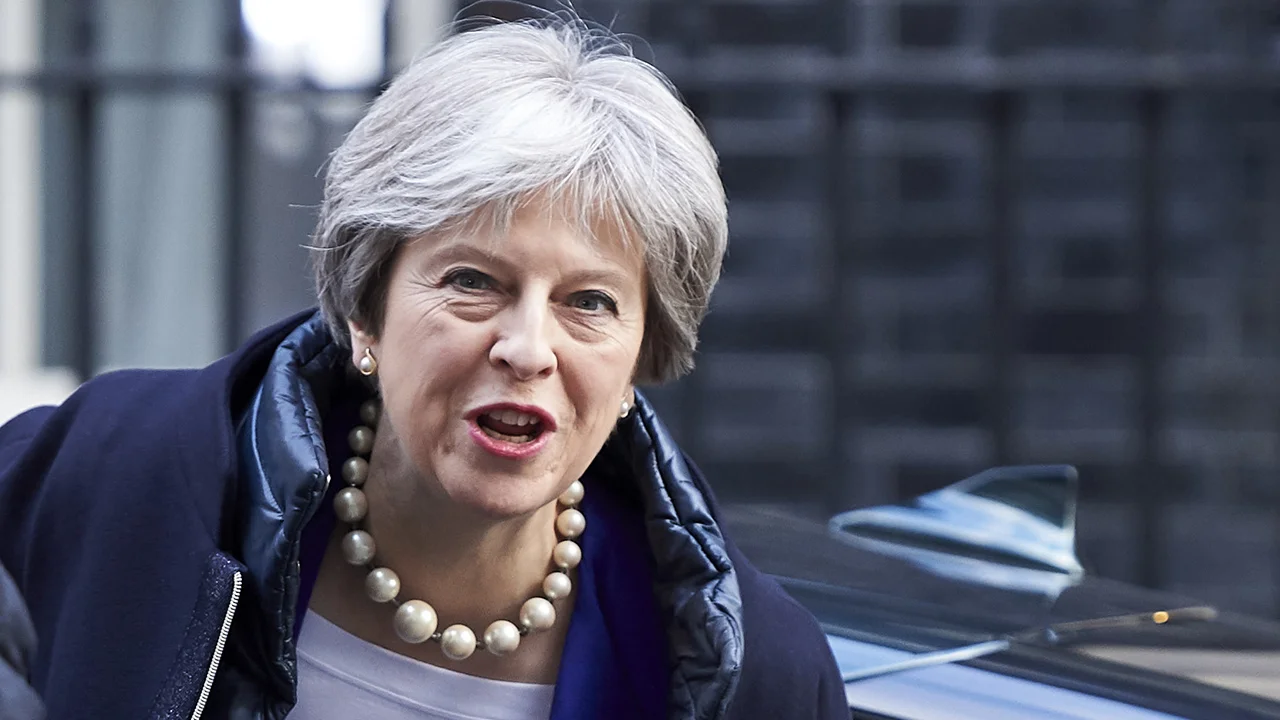Whether her Brexit deal passes parliament or not this week, British Prime Minister Theresa May’s days are numbered, experts have said.
The Conservative leader has in the past won praise for her determination and ability to survive what has often felt like one long political crisis since the 2016 EU referendum.
But her approach to the Brexit endgame, seeking changes to the deal she herself negotiated with under three weeks to go until exit day, has prompted frustration and anger on all sides.
Pro-European ministers are in revolt over the risk of a “no deal” exit, while Brexit hardliners are livid that her promise of a decisive divorce appears to be receding.
At the same time, criticism of May’s legacy from six years as interior minister is growing following a surge in knife crime and an ongoing row over the treatment of migrants.
“At first she appeared to be a unifier, but she turned out to have too little courage, imagination or skill to lead the Brexit negotiations,” said an editorial in the Conservative-backing Spectator magazine.
It reluctantly urged MPs to back May’s divorce deal on Tuesday, but only so that Britain could “turn the page on this unhappy chapter of our political history”.
‘Closed door’
May took office after the 2016 referendum, and despite having campaigned to stay in the EU, embraced the cause with the mantra “Brexit means Brexit”.
Her promise to leave the EU’s institutions and end free movement of workers delighted eurosceptic MPs, but caused dismay among many pro-Europeans.
The splits in her Conservative party became a serious problem after a disastrous snap election in June 2017, when May lost her parliamentary majority.
She was forced to strike a deal with Northern Ireland’s pro-Brexit Democratic Unionist Party (DUP), and since then has struggled to keep her party and its allies together.
Naturally reserved and reliant on her husband Philip and a few close aides, May often says she is just quietly “getting on with the job”.
But in the last election, she struggled to engage with voters and was dubbed the “Maybot” after churning out the same answers and speeches over and over again.
Critics complain of similar difficulties in communicating during the Brexit talks, and even her own ministers are reportedly unsure what she will do if her deal is voted down.
Matthew Parris, an anti-Brexit former Conservative MP who now writes for The Times, said he once thought May was a merely an “unremarkable” politician dealing with a tough situation.
But he said her inability to engage with colleagues had exacerbated divisions over Brexit, describing her as “the living embodiment of the closed door”.
Seemingly impossible
May survived a confidence vote in December among her own MPs over her Brexit deal and is immune from a similar challenge within a year.
She was forced to promise to quit before the next scheduled election in 2022, however, and even then, one third of her MPs voted to unseat her.
Reports this weekend suggest senior members of government are considering whether she should offer to quit to persuade lawmakers to support her deal.
But May has been written off before.
She survived the resignations of a string of high-profile Brexit supporters, notably former foreign secretary Boris Johnson, and has endured constant sniping from MPs on the sidelines.
Her supporters note that getting a deal at all with the EU, after Britain’s biggest peacetime negotiations, was a huge feat in itself.
If she gets it approved next week, she will rightly claim a major success.
“She will bask in a bump in the polls and adulation from a couple of the red tops for having achieved the seemingly impossible,” said Anand Menon, professor of European politics at King’s College London.
“That might make it hard to remove her straight away,” he told AFP, but added: “I can’t see her being there a year after we’ve left (the EU).”






2 Comments